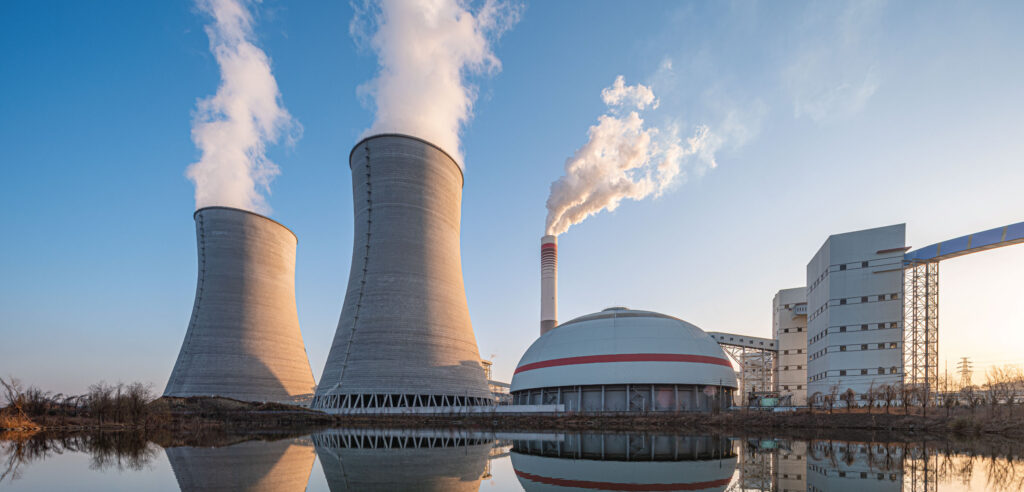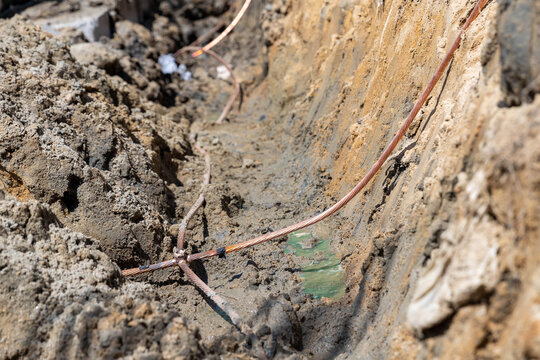
Nuclear power holds a notable position in South America’s energy sector compared to other regions. Some countries are exploring nuclear energy as an alternative, driven by various factors. Argentina’s Embalse and Brazil’s Angra are key nuclear power plants in the area. About 10% of Argentina’s electricity comes from nuclear reactors. Nuclear energy can boost energy security, diversify sources, and reduce carbon emissions. It presents an opportunity to lower carbon levels in energy systems due to its low carbon footprint, helping cut dependence on fossil fuels. This supports the continent in meeting its climate goals under the Paris Agreement. Additionally, grounding systems create a path for fault currents and protect both equipment and personnel from electric shock.
Grounding cables are installed on transmission towers and electrical gear to ensure a secure route for fault currents. Ground rods are placed near towers and substations, ensuring safe dispersal of electrical faults. High-quality grounding systems are vital for maintaining the safety and reliability of nuclear reactors. The dependability of nuclear energy relies on grid stability, base load power, and operational efficiency. Explore the role of nuclear power in solving electricity issues, and understand the importance of grounding systems in South America’s energy landscape.
Using nuclear energy to address the electricity challenges in South America.
Nuclear power holds promise in tackling South America’s electricity challenges. This is by improving energy security and grid reliability. Additionally, it supports environmental goals by reducing reliance on coal, oil, and natural gas. As a result, nuclear power offers benefits that contribute to resolving the region’s energy sector issues. By doing so, it positions it as a crucial part of South America’s future energy landscape. Grounding systems in nuclear plants enhance safety, protect equipment, and ensure a stable electrical supply. Below are some ways nuclear power can address electricity concerns in South America.

- South America is aiming to decrease carbon footprints by setting ambitious climate goals to achieve low carbon emissions. Nuclear energy is crucial in combating climate change as it does not emit any greenhouse gases while operating. Additionally, it supplements renewable energy by offering a consistent supply of electricity when solar and wind energy generation is low.
- Nuclear energy decreases reliance on imported fossil fuels, enhancing energy security and independence. For example, Argentina and Brazil can lessen their dependence on imported fuels and boost energy autonomy.
- Investing in nuclear technologies enables flexibility, safety enhancements, and potential for increased scalability through technological innovation. Small modular reactors being developed in Argentina are more cost-effective than traditional large-scale reactors. Modern technologies have enhanced safety features to cut the chance of accidents.
- The energy mix in South America needs to be diversified as countries currently rely on hydroelectric power, leaving them vulnerable to droughts and seasonal fluctuations. Nuclear power offers a reliable and consistent electricity supply. This enables these nations to diversify risk among various energy sources and lessen dependence on a sole source.
The environmental impacts of nuclear power plants and the importance of grounding systems.
The impact of nuclear power plants can be either positive or negative, depending on how they operate. Nuclear energy helps lower carbon emissions and provides a reliable power source. However, nuclear facilities encounter challenges like radioactive waste, thermal pollution, and the potential for accidents. Grounding systems in nuclear plants help mitigate risks related to electrical failures. Environmental issues include nuclear waste, thermal pollution, water consumption, radioactive contamination risks, and land usage. At TTF Power Systems, we are a one-stop shop for utility pole hardware fittings, transmission line accessories, and power line construction equipment. This including grounding systems like cables and rods. We also offer our customers the industry’s widest selection of items, exceptional value, and professional service. Below are the roles of grounding systems in reducing environmental and safety risks.

- Grounding systems aid in preventing electrical accidents that may result in equipment failure, thus avoiding environmental contamination. Excessive heat in the reactor core may result in radioactive materials escaping into the surroundings.
- Ensuring the wellbeing of humans and animals – a well-engineered grounding system lowers the likelihood of electrical mishaps. They make sure that stray currents do not cause hazardous situations that may result in plant malfunctions.
- Avoiding electrical malfunctions and machinery harm – the systems release surplus electrical energy into the ground. This aids in avoiding electrical fires, malfunctions, or power interruptions.
